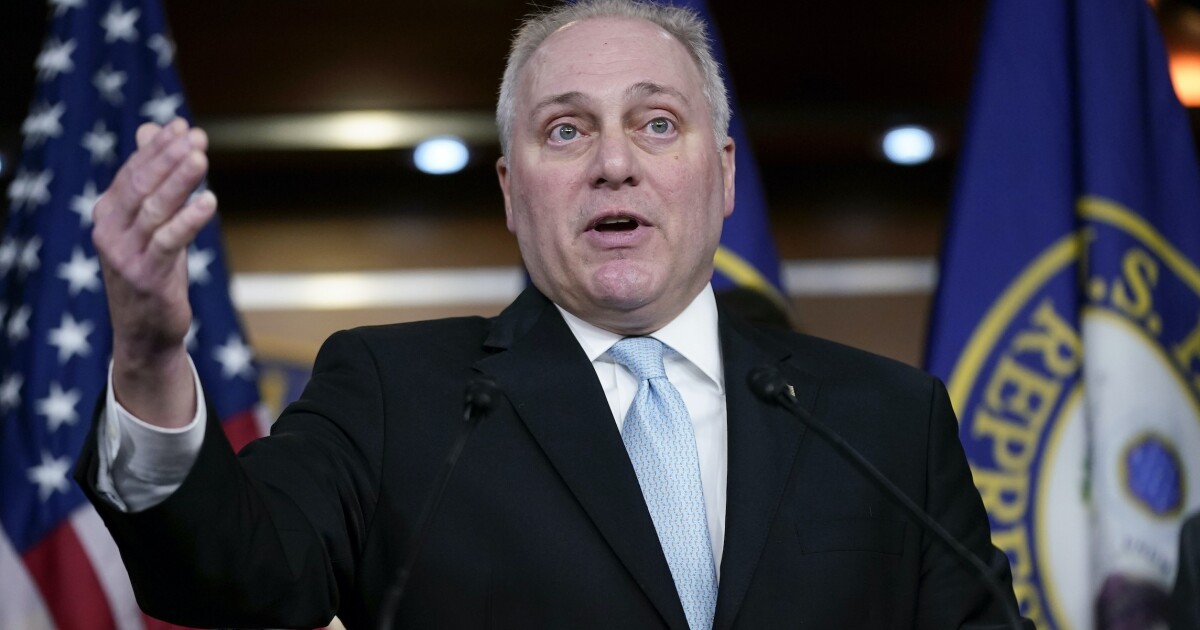

House Majority Leader Steve Scalise (R-LA) rejected claims from Democratic detractors that the GOP is planning to slash veterans’ funding in their debt ceiling proposal.
Democrats, particularly President Joe Biden, have hammered Republicans with claims that their Limit, Save, Grow Act, which narrowly cleared the House last week, will slash funding for veterans by 22%.
HUGO GURDON EXPLAINS THE UNPOPULARITY OF JOE BIDEN AND DONALD TRUMP
“We’ve heard this lie over and over again,” Scalie told ABC’s This Week. “The only person talking about cutting veterans benefits is Joe Biden … I will not bring the bill to the floor of the House, even if President Biden wants it,” he said, referring to a hypothetical bill that would cut veterans funding.
Under the Limit, Save, Grow Act, Republicans are offering to lift the debt ceiling by $1.5 trillion or until March 31, 2024, whichever comes first, in exchange for a heap of spending reductions. The bill would return discretionary spending levels for most programs to the fiscal year 2022 levels with a 1% cap on annual increases.
Cuts to the military are excluded from the plan. But the White House Office of Management and Budget applied that rollback to veterans in its analysis and estimated it would cut funding by 22% for veterans. Veterans Affairs Secretary Denis McDonough publicly echoed those claims in a recent interview.
“We’ve seen the Secretary of the VA trying to scare people and put out things that they know are completely false. Show me in the bill where it says any of those things. It doesn’t. And the President knows that. Martha, the President doesn’t want to talk about what’s in the bill,” Scalise added.
A number of veterans groups, such as the Secure Families Initiative, have warned that cuts to veterans funding would be detrimental given long wait lists and a string of troubles dogging the VA.
CLICK HERE TO READ MORE FROM THE WASHINGTON EXAMINER
The Limit, Save, Grow Act also reduces the deficit by rescinding unused COVID-19 funds, scrapping Biden’s student loan forgiveness pan, rolling back energy tax credits, and enacting work requirements on various social programs. One iteration of the measure was estimated to reduce the federal deficit by $4.8 trillion over the next 10 years.
Democrats have coalesced in opposition to the proposal. The Treasury Department’s “extraordinary measures” to prolong government spending are expected to run dry sometime between June and August, according to various estimates. Should Congress fail to reach a resolution, the country would be at risk of default.





